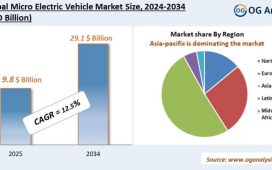Today, artificial intelligence is present in practically every corner of the tech industry. Its evident benefits quickly pushed it to become the basis of present and future developments for several firms. For this reason, a Microsoft executive is urging the US government to take action to prevent China from taking the lead in AI, as Huawei did with 5G.
Huawei remained the leader in the 5G industry even after trade restrictions
Brad Smith, Microsoft’s Vice Chairman and President, shared his thoughts regarding the situation of China and the United States in the AI industry. In recent years, government support for Chinese companies has managed to turn them into world leaders in some sectors. For example, Huawei remains the leading 5G company, even with all the trade restrictions.
The US government’s trade restrictions on Huawei prompted the Chinese government to support its star company more than ever. The financing paid off and maintained—or grew—Huawei’s position in the market. “…but as Huawei invested in innovation and China’s government-subsidized sales of its products, especially across the developing world adoption of these Chinese products outpaced the competition and became the backbone of numerous countries’ telecommunications networks.” – says Brad Smith.
The executive at Microsoft tells the US government in the blog post that the same thing could happen in the AI sector.
Microsoft’s Vice Chairman urges the US to prevent a “Huawei case” in the AI field
Recently, Washington announced a new set of restrictions that seek to curb the ability of Chinese companies to access AI chips. The government claims that China’s access to this hardware represents a potential danger to national security. Beijing could implement this technology in military or espionage applications. The new measures came after it was discovered that Huawei was using AI accelerators manufactured in TSMC factories with US technology. The ongoing China-linked hacking campaign on the country’s telecommunications infrastructure may also have something to do with it.
However, the situation is reminiscent of when the United States began imposing trade restrictions on Huawei. So, Smith fears that China could respond in kind. That is, the government could start supporting its local AI industry even more to the point of, eventually, getting ahead of the United States.
China taking the lead in the AI segment could have serious consequences not only for US national security but even for its local industry, claims Smith. He gives the example of Lucent Technologies, which was once under the wing of AT&T but ended up being sold to Nokia. He warns that even Microsoft could go through something like this in a context of absolute Chinese dominance of AI.
Government support is key, says Smith
For Smith, the answer lies in government support for local AI companies. He thinks the United States should respond to the “threat” in the same way that China did. In other words, helping and promoting the local AI industry to speed up progress and development.
Smith recalls when US and European companies like Nokia, Ericsson, Alcatel, and Lucent were developing competitive products in the telecom market. However, the parity was broken when Huawei began receiving serious state support. That boost reinforced its position as the leading supplier of 5G equipment in the world.
Today, Huawei still has trouble getting the newest tools and equipment for making both chipsets and AI hardware because of trade restrictions. The US could take advantage of this to get ahead and create a big gap. However, that would require quick action by the government.









